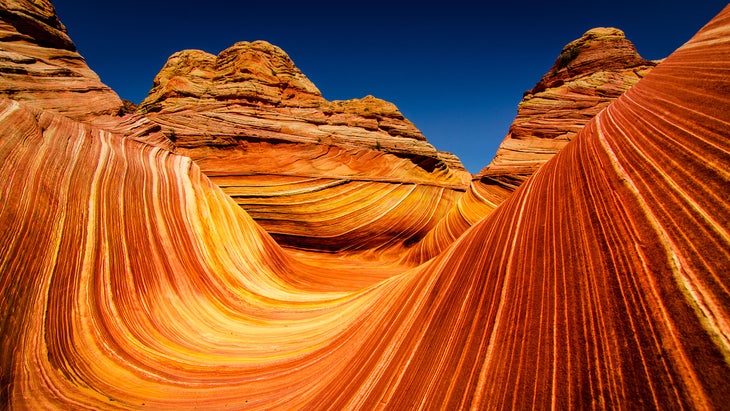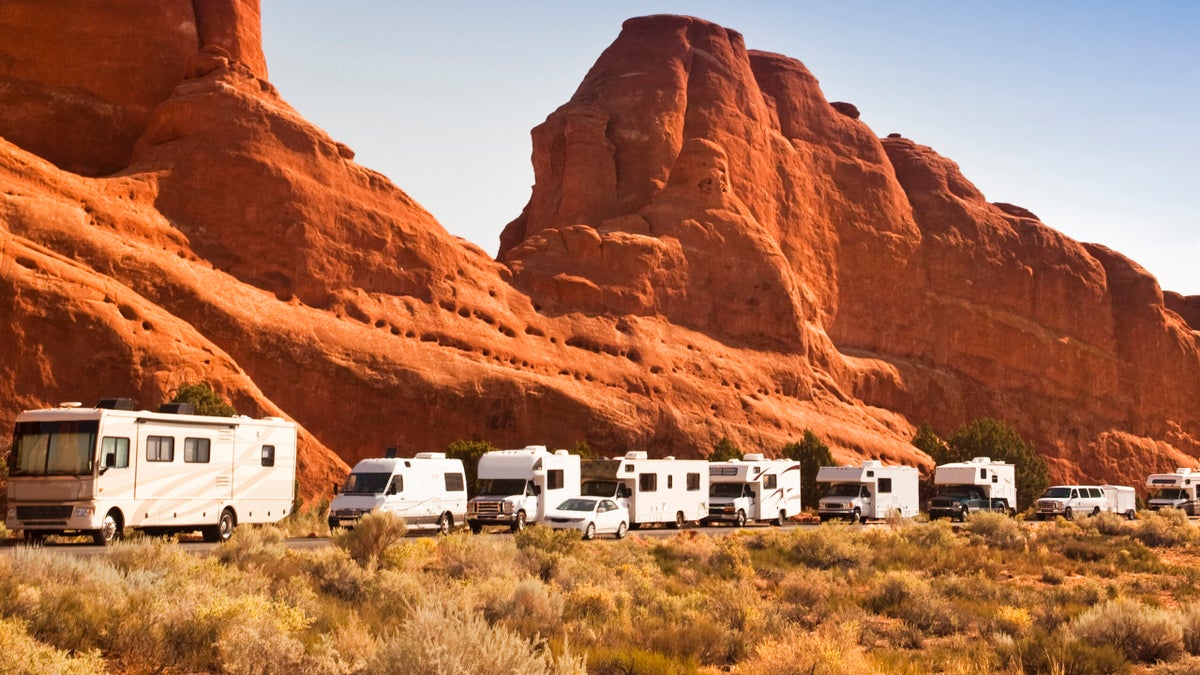No products in the cart.
Outdoor Adventure
Why I’ve Given Up on Lottery-Based Outdoor Permits
Hiking isn’t just a hobby—it’s a lifestyle. Maggie Slepian tackles the hiking life—and all of the joys, problems, arguments, and weird quirks that go along with it—in her column.
I have attempted exactly one lottery-based backpacking permit in my entire life. It was for the Pacific Crest Trail in 2020. I was an anxious wreck leading up to the first permit day—I marked it on my calendar, triple-checked the time zone, and then logged on 15 minutes prior to the start, refreshing my browser every few seconds. I had been planning for the PCT for two years, but thanks to a family wedding in April, I had a narrow window of workable start dates.
I stared in disbelief when my lottery number populated. I had landed in the mid-7,000’s in the queue. As the minutes ticked by and the little pixelated hiker walked in place on the screen, I checked the PCT chat threads as they filled up with screenshots of the start-date calendar. The “ideal” start dates were gone in minutes, then one by one the rest were blocked off, including every day during the two weeks I needed to start. Maybe I can get through the desert, head back for the wedding, then fly back to the trail, I thought, watching the remaining dates in early March vanish. By the time I got into the reservation space, every start date was gone. My plans had evaporated in the span of 30 minutes while staring at a computer screen.
This is not a dunk on the PCT permit system, the PCT Association, or permits in general. I fully support permitted hikes and dedicated start dates; I understand that as thru-hiking blows up, it may be the only practical solution to protect the trail; and I know that there may be ways to plan around not getting the date you wanted. But if there’s one thing the experience taught me, it’s that permit lotteries just aren’t for me.
There are plenty of permitted trails I’d love to hike, like the Wonderland Trail in Washington, and limited-access areas I’d love to see, like the Wave in Arizona. I don’t try. Like many backpackers, my schedule is unpredictable enough that I can’t commit to a backpacking trip four months in advance.
Beyond that, part of the joy of backpacking for me is the spontaneity. I base my mileage by how I’m feeling and the conditions, and sometimes trips and opportunities pop up at the last minute. The stress of submitting itineraries and trying for the first-, second-, and third-choice routes and campsites is just too much for me and my anxiety.
Don’t get me wrong. There are benefits to permit lotteries. These systems allow avid hikers to plan their season around the most elusive permits, then fill in the blanks once they have a trip locked in. Prescribed routes and set dates also take pressure off mileage planning—those hikers will never show up to a campsite only to find it full.

Limited-access areas and lottery-based permits are also wonderful tools for sustainable travel. They allow the most popular routes and fragile areas to remain open for travel without exceeding the upper limit of foot-traffic volume.
Arguments abound online—often during “permit season”—that restricting public-land access via lotteries and numbers goes against the idea of public land. But the choice is rarely between open access and permits; it’s between permitted access and nothing. Why would you argue against strategies to protect these lands by limiting traffic?
But it’s OK to admit that permitted trails aren’t for you. That’s OK! There are plenty of other trails to hike (though with the boom in outdoor recreation over the past few years, it seems very possible that there might be fewer soon). I hike trails and visit areas that don’t require permits. These areas might not be as popular, but they can be just as beautiful. I don’t want to enter the lottery system to hike the John Muir Trail, in California, but there’s always the High Sierra Trail. I don’t want to plan a Glacier National Park backpacking trip, but I’ll do day hikes on the same Montana trails.
Like anything in the outdoors, balance is key. We love removing barriers to entry and helping people experience the outdoors. But when those barriers to entry help protect the places we love, sometimes that has to trump easy access. As I’ve discovered, if you don’t want to deal with permits, there’s something out there for you if you know where to look.
If you’re one of those people who likes to hike spectacular trails no matter the obstacles, well, my dropping out only benefits you. After all, if everyone was trying for a tricky permit, the lotteries would be that much more competitive.
As for the conclusion of the PCT permit saga? I entered the second permit day a few months later, landed an incredible lottery number, and got my first choice of a start date. Three months later, I canceled my trip as COVID exploded across the country. There are some obstacles you just can’t plan your way around.
Source link

